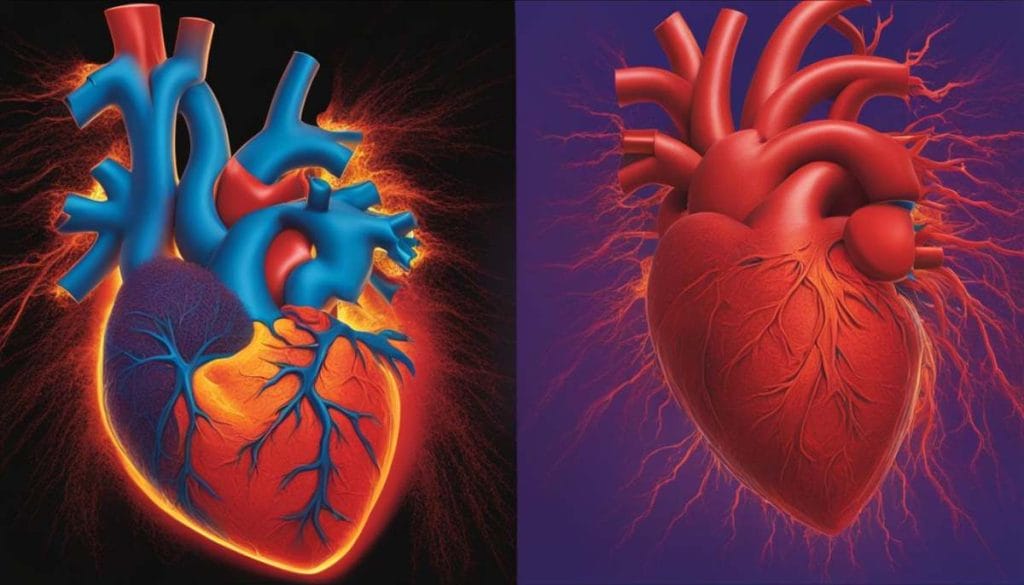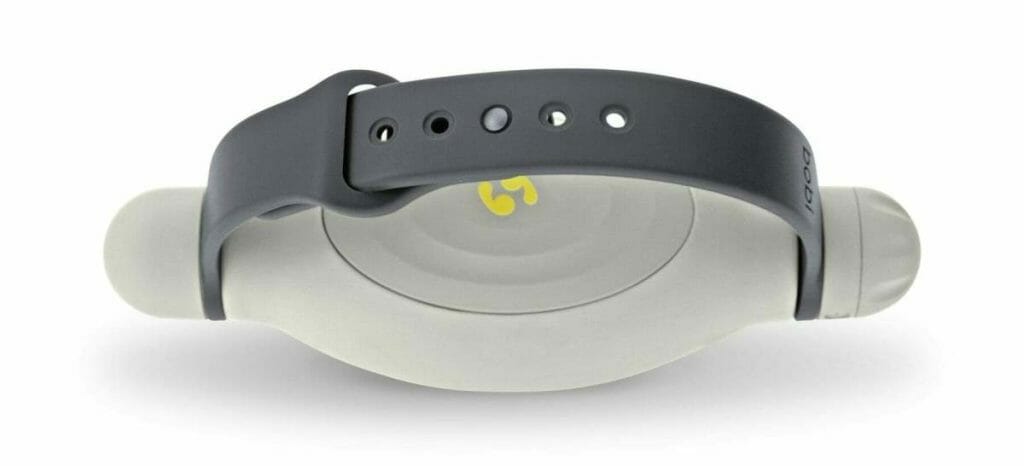
You may find yourself wondering about the difference between a heart attack vs panic attack. In my clinic, I often receive questions on this topic, so I wanted to take the opportunity to provide some clarity in this blog. By understanding the key distinctions between these two types of attacks, readers can better recognize and respond to their specific health concerns. It is crucial to differentiate between heart attacks vs panic attacks to ensure appropriate medical care is sought. Both can have a significant impact on physical and mental well-being, making it essential to be well-informed. By learning about heart attack vs panic attack, readers can enhance their health literacy and make informed decisions regarding their overall well-being.
Heart attacks are a medical emergency that require immediate medical attention. They occur when blood flow to the heart muscle is blocked, leading to chest pain and other symptoms. Risk factors for heart attacks include high blood pressure, smoking, and a history of heart disease. Recognizing the symptoms of a heart attack is crucial for seeking medical help quickly. Prompt medical care can help minimize damage to the heart muscle and improve outcomes. It’s important to take any chest pain or discomfort seriously and not delay seeking emergency care. Remember, when it comes to heart attacks, it’s always better to err on the side of caution and seek immediate medical attention.

Symptoms of a heart attack can vary, but one common symptom is chest pain or discomfort. However, it’s important to note that a heart attack can also manifest as upper abdomen pain. Other symptoms may include shortness of breath, pain or discomfort in the arms, back, neck, or jaw, and a cold sweat. It’s interesting to note that men and women may experience heart attack symptoms differently, with women being more likely to experience shortness of breath, nausea, and vomiting. Not everyone experiences severe chest pain during a heart attack, so it’s important to be aware of the other possible symptoms as well.
Heart attacks occur when there is a blockage in the arteries due to the buildup of plaque. This blockage is often caused by risk factors such as high blood pressure, high cholesterol levels, smoking, obesity, and a sedentary lifestyle. Additionally, having a family history of heart disease, diabetes, and experiencing stress can also increase the risk of heart attacks. Another contributing factor is coronary artery disease, which restricts blood flow to the heart. It is important to be aware of these causes and risk factors to take necessary precautions and seek medical assistance promptly if needed.
Panic attacks are intense episodes of fear and anxiety that can occur suddenly, without warning. They are a type of anxiety disorder characterized by physical symptoms like a rapid heart rate, chest pain, and difficulty breathing. These attacks can be triggered by specific situations or happen unexpectedly. It’s crucial to differentiate panic attacks from other medical conditions such as heart attacks, which require immediate medical attention. Panic attacks can have a significant impact on a person’s quality of life, but effective treatment options are available. If you experience symptoms of a panic attack, it’s advisable to consult with a primary care doctor or seek emergency care to rule out any underlying medical issues.
Symptoms of a panic attack can manifest in various ways, including a racing heart, shortness of breath, chest pain, dizziness, and a fear of losing control. One of the main physical symptoms is hyperventilation, which involves shallow and rapid upper chest breathing. This heightened state of panic can be attributed to the flight response triggered by emotional stress. It’s important to note that while panic attack symptoms may resemble those of a heart attack, they do not pose a risk of physical harm. If you frequently experience these symptoms, it is advisable to seek medical help from your primary care doctor for a proper diagnosis and treatment.
While the exact cause of panic attacks remains unknown, experts believe that a combination of genetic, biological, and environmental factors may contribute to their occurrence. Individuals with a history of panic attacks or a family history of anxiety disorders are more likely to experience them. High levels of stress and certain medical conditions, such as thyroid disorders, can also serve as risk factors. Additionally, substance abuse and a history of trauma can increase the likelihood of developing panic attacks. Understanding personal triggers and adopting effective stress management techniques can help reduce the frequency and severity of these episodes.
Distinguishing between heart attack vs panic attack can be challenging, as symptoms can overlap. Heart attacks typically involve severe chest pain, shortness of breath, and pain radiating to the arms, back, or jaw. Panic attacks, on the other hand, are often associated with intense fear, a rapid heart rate, chest discomfort, and a fear of losing control. If panic attacks are a recurring issue, a medical professional can help differentiate between panic attacks and other medical conditions. It’s important to seek medical help for a proper diagnosis. Remember, it’s always better to err on the side of caution when it comes to your health.
Panic attacks can cause physical symptoms similar to a heart attack, but they don’t actually trigger heart attacks. However, frequent panic attacks can contribute to stress, which may increase the risk of heart disease over time. Managing anxiety and seeking treatment for panic attacks is crucial for promoting heart health. If you experience chest pain or other heart attack symptoms, seek immediate medical attention.
Managing risk factors for heart attacks and panic attacks is crucial. While it’s important to note that a panic attack cannot trigger a heart attack, both conditions require careful management on their own. For heart attacks, it’s essential to address risk factors such as physical exertion, emotional stress, and underlying medical conditions. Seeking medical attention promptly and following the advice of your primary care doctor is crucial. Panic attacks, on the other hand, are often associated with anxiety and may require therapy or medication for effective treatment. If you experience symptoms of either condition, it’s important to seek appropriate medical care.

A heart attack is a medical emergency that occurs when there is a blockage of blood flow to the heart muscle. It is important to seek prompt medical care if you experience symptoms such as chest pain, shortness of breath, or discomfort in the upper body. Risk factors for heart attack include high blood pressure, high cholesterol, smoking, and a sedentary lifestyle. Treatment for a heart attack may involve medication, lifestyle changes, and, in severe cases, surgery. It is crucial to prioritize your heart health by managing risk factors and seeking appropriate medical care. Remember, early intervention can improve outcomes and enhance your quality of life after a heart attack.
Treatment for panic attacks often involves a combination of therapies, including cognitive-behavioral therapy (CBT) and medication. If you experience frequent or severe panic attacks, seeking medical help and a proper diagnosis is important. Learning coping mechanisms and relaxation techniques can help prevent and manage panic attacks. As mentioned in our previous blog, slow conscious breathing is known to assist in mitigating the impact of panic attacks. It’s important to remember that panic attacks are not the same as heart attacks. Although they may cause similar symptoms, panic attacks do not involve physical exertion or a blockage of blood flow to the heart. If you’re unsure about your symptoms, it’s always best to consult with your primary care doctor or seek emergency care.
In summary, differentiating heart attack vs panic attack can be challenging due to the similarities in their symptoms. However, it is crucial to understand the key differences to seek appropriate medical help and treatment.
If you experience symptoms such as intense and persistent chest pain, it is important to prioritize seeking immediate medical attention. Heart attacks are medical emergencies that require prompt evaluation and intervention.
On the other hand, panic attacks, while not life-threatening, can be distressing and debilitating. If you are unsure about your symptoms or concerned about the possibility of a heart attack, it is always better to err on the side of caution and consult with a healthcare professional to rule out any cardiac issues.
Strategies that incorporate slow breathing, including bobi, are a highly effective way to ensure anyone can manage the early stages of a panic attack.

The signs of a heart attack include chest pain or discomfort, shortness of breath, nausea, lightheadedness, and pain or discomfort in other areas of the upper body, such as the arms, back, neck, jaw, or stomach.
Panic attacks can be managed through various methods, including deep breathing, relaxation techniques, cognitive-behavioral therapy (CBT), and medication prescribed by a primary care doctor or mental health professional.
While panic attacks can cause symptoms that mimic a heart attack, they do not directly lead to a heart attack. However, it’s important to seek medical attention to rule out any underlying medical conditions.
Yes, panic attacks are a symptom of panic disorder, which is a type of anxiety disorder. People with panic disorder experience recurring panic attacks and often live in fear of experiencing another one.
A: While panic attacks are not life-threatening like heart attacks, seeking medical help is still important. A healthcare professional can provide an accurate diagnosis, offer appropriate treatment options, and help manage any underlying anxiety disorder.
Stay updated on what's happening at bobi, and all things breathing, anxiety and mental wellness.